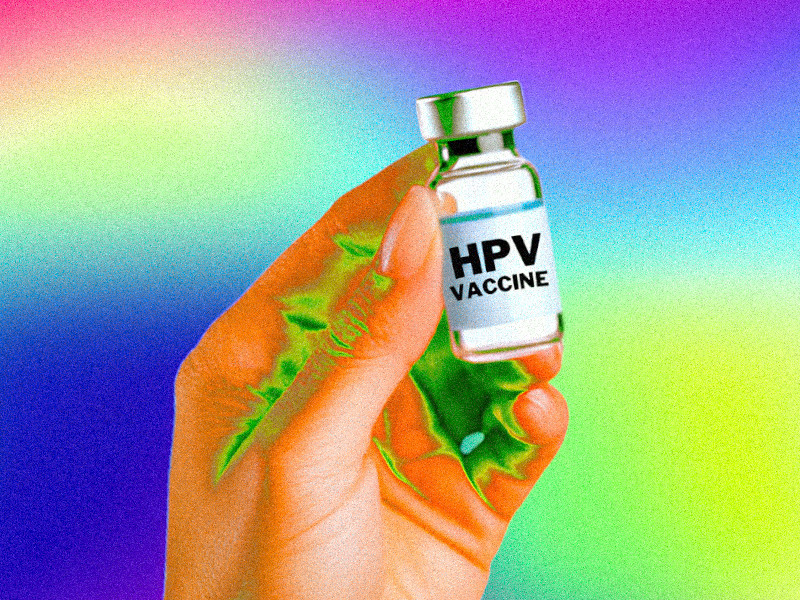The Importance of Regular STI Testing: What You Need to Know
2528
Discover the importance of regular STI testing for maintaining sexual health, preventing infection spread, and ensuring early detection and treatment.

The Importance of Regular STI Testing: What You Need to Know
Sexually transmitted infections (STIs) are a significant public health concern, affecting millions of people each year. While many STIs can be asymptomatic, regular testing is crucial for maintaining sexual health and preventing the spread of infections. Here’s what you need to know about the importance of regular STI testing.
Understanding STIs
STIs are infections that are primarily spread through sexual contact. Bacteria, viruses, or parasites can cause them. Common STIs include chlamydia, gonorrhea, syphilis, herpes, and HIV. Many people may not experience noticeable symptoms, leading to undiagnosed infections and an increased risk of complications.
Why Regular Testing is Important
- Asymptomatic Infections: Many STIs do not present symptoms, especially in their early stages. Regular testing can help identify infections before they lead to serious health issues, such as infertility or chronic pain.
- Preventing Spread: Regular testing helps to control the spread of STIs. Knowing your status allows you to take necessary precautions, such as informing partners and practicing safer sex.
- Early Detection and Treatment: Early detection through regular testing enables prompt treatment, which can minimize health complications. For instance, untreated chlamydia can lead to pelvic inflammatory disease (PID) in women, which may result in infertility.
- Maintaining Sexual Health: Regular testing is a proactive step in taking charge of your sexual health. It promotes open conversations with partners and healthcare providers, fostering a culture of transparency and responsibility.
- Protecting Others: By getting tested regularly, you protect not only your health but also the health of your partners’. This communal aspect of sexual health is vital in reducing the overall incidence of STIs.

Who Should Get Tested?
- Sexually Active Individuals: Anyone who is sexually active should consider regular testing. This includes those with new partners, multiple partners, or those not using barrier protection consistently.
- High-Risk Groups: Certain populations, such as men who have sex with men, individuals with HIV, and those engaging in non-monogamous relationships, should prioritize frequent testing.
- Pregnant Individuals: Pregnant individuals should be tested for STIs to protect their health and the health of their baby. Some STIs can be transmitted during childbirth.
How Often Should You Get Tested?

The frequency of STI testing depends on individual risk factors and sexual activity:
- Every 3 to 6 months for individuals with multiple partners or high-risk behaviors.
- Annually for those in monogamous relationships or who use barrier methods consistently.
- After any new sexual partner or if experiencing symptoms.
The Most Common STIs & Treatment
1. Herpes (Genital and Oral)
Explanation:
Herpes is caused by the herpes simplex virus (HSV), which has two types: HSV-1 (commonly associated with oral herpes) and HSV-2 (commonly associated with genital herpes). Oral herpes typically causes cold sores around the mouth, while genital herpes leads to sores in the genital area.
Treatment:
There is no cure for herpes, but antiviral medications like acyclovir, valacyclovir, and famciclovir can help manage outbreaks, reduce symptoms, and lower the risk of transmission.
2. Lymphogranuloma Venereum (LGV)
Explanation:
LGV is a sexually transmitted infection caused by certain strains of the bacteria Chlamydia trachomatis. It primarily affects the lymphatic system and can cause painful swelling in the groin and lesions in the genital area.
Treatment:
LGV is typically treated with antibiotics. Doxycycline is commonly prescribed for 21 days, but alternatives such as azithromycin may be used depending on individual circumstances.
3. Gonorrhea
Explanation:
Gonorrhea is caused by the bacterium Neisseria gonorrhoeae. It can infect the genitals, rectum, and throat, often leading to symptoms like painful urination, and discharge, and in some cases, it may be asymptomatic.
Gonorrhea is treated with antibiotics. The CDC recommends a dual therapy approach, usually involving an injection of ceftriaxone and oral azithromycin to effectively combat potential antibiotic resistance.
4. Chlamydia
Explanation:
Chlamydia is another common STI caused by the bacterium Chlamydia trachomatis. It can affect both men and women, often presenting with mild symptoms or none at all, but may lead to serious reproductive health issues if untreated.
Chlamydia is treated with antibiotics, commonly azithromycin (a single dose) or doxycycline (for seven days). Regular screening and prompt treatment are important to prevent complications.
5. Ureaplasma Infection
Explanation:
Ureaplasma is a type of bacteria that can live in the urogenital tract. While it can be part of normal flora, it may cause infections, particularly in individuals with compromised immune systems or those undergoing certain medical procedures.
Treatment:
Treatment typically involves antibiotics, such as azithromycin or doxycycline. It’s important to consult a healthcare provider for appropriate diagnosis and treatment options.
6. Trichomoniasis
Explanation:
Trichomoniasis is caused by the parasite Trichomonas vaginalis. It can lead to symptoms like itching, burning, and discharge, but many individuals remain asymptomatic. It primarily affects women but can also infect men.
Treatment:
Trichomoniasis is treated with antibiotics, most commonly metronidazole or tinidazole, usually administered as a single dose. Both partners need to be treated to prevent reinfection.
What is PULSE’s PCR Multiplex DNA Test for 28 Infections?
Our STD PCR Multiplex test represents the most advanced technology available for detecting multiple infections in a single test. This comprehensive test covers 28 different infections across various locations, including common sexually transmitted diseases such as Gonorrhea, Chlamydia, Syphilis, and Herpes Simplex (types 1 and 2), as well as other infections like Trichomonas and several strains of Candida.
The STD PCR Multiplex can identify infections in multiple anatomical areas, including the throat and oral cavity, male and female urethra, anorectal region, vagina and cervix, sperm, and skin lesions. Depending on your situation, specific testing options are available. For infections in the urethra and urinary tract, the Urine PCR for 28 infections is recommended. If you've had oral sex and want to check for throat infections, the Throat Swab PCR for 28 infections is the appropriate choice, with assistance from our staff.
For females who engage in anal sex without protection, as well as men who have sex with men, the Anal Swab PCR for 28 infections is suggested, also with staff assistance. Lastly, females who have vaginal sex should opt for the Vaginal Swab PCR for 28 infections, where our staff will guide the process.
| PCR for 28 Infections (STD Multiplex) | Online results | |||
| Same day** | Next day | 3 days | 7 days | |
| Throat | 14,000 THB | 11,600 THB | 10,480 THB | 9,200 THB |
| Urine | 14,000 THB | 11,600 THB | 10,480 THB | 9,200 THB |
| Anal Swab | 14,000 THB | 11,600 THB | 10,480 THB | 9,200 THB |
| Vaginal Swab | 14,000 THB | 11,600 THB | 10,480 THB | 9,200 THB |
| Cervical Swab | 14,000 THB | 11,600 THB | 10,480 THB | 9,200 THB |
| Sperm | 14,800 THB | 12,640 THB | 11,600 THB | 10,080 THB |
| Skin Lesion Swab | 14,000 THB | 11,600 THB | 10,480 THB | 9,200 THB |
| Pooling | 15,600 THB | 13,280 THB | 12,400 THB | 10,800 THB |
| PCR for 2 Infections (Gonorrhea/Chlamydia) | Same day | Next day | 3 days | 7 days |
| Throat | 5,690 THB | 4,990 THB | 3,990 THB | 3,300 THB |
| Urine | 5,690 THB | 4,990 THB | 3,990 THB | 3,300 THB |
| Vaginal and Cervical Swab | 5,690 THB | 4,990 THB | 3,990 THB | 3,300 THB |
| Rectal Swab | 5,690 THB | 4,990 THB | 3,990 THB | 3,300 THB |
| Sperm* | 6,200 THB | 5,150 THB | 4,100 THB | 3,690 THB |
| Skin lesion Swab | 5,690 THB | 4,990 THB | 3,990 THB | 3,300 THB |
How to Get Tested
1. Visit PULSE Clinic: You can book an appointment with us now for an STD PCR Multiplex DNA Test for 28 Infections.
2. Use Home Testing Kits: PULSE Clinic offers home STI testing kits for private and convenient testing. You can get this at our clinics or online.
Trust PULSE CLINIC to take care of your health like other 45000 people from over 130 countries. We provide discreet professional service with high privacy. Here to help, not to judge.
Human Papillomavirus (HPV)
What is HPV?
Human Papillomavirus (HPV) is a group of over 200 related viruses, of which more than 40 types can be transmitted through sexual contact. Some HPV types can cause genital warts, while others are associated with various cancers, including cervical, anal, and oropharyngeal cancers.
How Does HPV Spread?
HPV primarily spreads through direct skin-to-skin contact during sexual activity, which can include:
- Vaginal or anal intercourse
- Oral sex
- Genital contact (even without penetration)
HPV can be transmitted even when an infected person has no visible symptoms or warts, making it difficult to identify and control the spread. Additionally, HPV can be contracted through intimate contact with an infected person’s genital area, including the surrounding skin.
What Disease Can It Cause?
Persistent HPV infections can lead to various cancers, including anal, throat, and penile cancers in men, as well as cervical cancer in women.
HPV types 16 and 18 are the primary contributors to cervical cancer and are also significant causes of HPV-related cancers in both genders, including:
- Anal cancer and cancers at the back of the throat, such as the base of the tongue and tonsils (oropharyngeal cancers) in both women and men.
- Penile cancer in men.
- Cancers of the cervix, vagina, and vulva in women.
HPV types 6 and 11 are mainly responsible for anal and genital warts. Additionally, HPV types 31, 33, 45, 52, and 58 account for about 15% of cervical cancer cases.
Human Papillomavirus (HPV) Testing & PAP Smear
HPV Testing
HPV testing detects high-risk types of the human papillomavirus associated with cervical cancer. It's often done alongside a PAP smear, especially for women over 30, using cervical cell samples.

HPV DNA Testing
Item | HPV DNA Hybribio 21 Genoarray for Women | HPV DNA Hybribio 21 Genoarray for Men |
Specimen collection | Cervical PAP smear Anal PAP smear | Anal PAP smear Urethral PAP smear Urine Specimen |
Genotype tested | 21 Types High risk: 16,18,31,33,35,39,45,51, 52,53,56,58,59,66,68 Low risk: 6,11,42,43,44,81 (CP8304) | 21 Types High risk: 16,18,31,33,35,39,45,51, 52,53,56,58,59,66,68 Low risk: 6,11,42,43,44,81 (CP8304) |
Waiting time & Price | 10 working days 4150 THB | Urine HPV DNA 21 3550THB 15 working days Anal PAP smear HPV DNA 21 Urethral PAP smear HPV DNA 21 4150THB 10 working days |
Doctor Examination | Included | Included |
Doctor fee | Included | 800 THB |
Add-on ThinPrep test | - | 1550 THB |
*** Please make an appointment in advance for your convenience and speed of getting the examination
Book Your HPV DNA Testing Today!
Contact us at info.bkk@pulse-clinic.com or chat on your preferred platform:
![]() +66 65 237 1936
+66 65 237 1936  @PULSEClinic
@PULSEClinic ![]() PulseClinic
PulseClinic
PAP Smear
A PAP smear screens for abnormal cervical cells that may indicate pre-cancerous changes or cervical cancer. During the test, cells are collected from the cervix for microscopic examination.
Combined Approach
Co-testing: Recommended for women aged 30 and older, combining a PAP smear with HPV testing enhances screening accuracy and identifies higher-risk individuals.
Recommendations
Frequency
- Women 21-29: PAP smear every three years.
- Women 30-65: PAP smear every three years or co-testing every five years.
Regular screenings are vital for early detection and prevention of cervical cancer, contributing to women's health.
HPV Vaccine

When to start?
As soon as possible. In October 2016 ACIP recommended HPV dosage according to age starting the first dose.
- Age less than 15 years old: 2-dose regimen (day 1 and month 6)
- Age above 15 years old: 3-dose regimen (day 1, month 1-2, month 6)
- Immunocompromised people such as HIV-infected patients: 3-dose regimen (day 1, month 1-2, month 6) regardless of age
Gardasil 9
9v = nonavalent HPV vaccine (Gardasil®9, HPV 6, 11, 16, 18, 31, 33, 45, 52, 58)
9v HPV vaccine (9vHPV, Gardasil®9, Merck&Co.) has been licensed by the USFDA to be used among males and females since December 2014. in February 2015, the Advisory Committee on Immunization Practice (ACIP) recommended that Gardasil®9 used for cancer prevention among males and females. It is widely used for prevention in developed countries.
Book Your HPV Vaccine Today!
Human Immunodeficiency Virus (HIV)
HIV is primarily transmitted through semen and blood-to-blood contact with someone who has a high viral load.
High-risk activities include:
- Sex without a condom (barebacking)
- Prolonged sexual sessions (increase the risk of irritation)
- Sex without lubricant (higher risk of anal injury)
- Sharing injecting equipment (low risk in Bangkok)
Transmission requires four conditions:
- Exist: One partner must have HIV.
- Enough: The infected partner must have a significant viral load (not on treatment).
- Exit: The virus must leave the body (through blood, semen, or mucous).
- Entry: The virus must enter the bloodstream of a negative partner (through unprotected sex or open wounds).
Without any one of these factors, HIV transmission cannot occur.
HIV testing (4th Generation)
The more active you are sexually, the more important it is to get tested. For those of us who are sexually adventurous, it's recommended to test for HIV every three months. This usually involves a small blood sample, and the doctor or nurse will likely conduct a syphilis test at the same time.
A 4th generation HIV test (HIV-1 p24 antigen and HIV-1 and HIV-2 antibodies) detects antibodies for HIV-1 and HIV-2, as well as the HIV-1 p24 antigen. It can identify 95% of infections 28 days after exposure and up to 99% by day 45. Moreover, it detects over 99.99% of infections at three months. If you’re still concerned, you can retest at 90 days (three months) for 99.99% certainty.
4th Generation HIV Test (HIV Combo) | Item | Method | Blood Collection | Waiting Time | Price |
HIV Combo (In-house Ag/Ab test) | Immunochromatography (IC) | Finger-Prick < 1mL. | 20 minutes | 1390 THB | |
HIV Combo (Out lab Ag/Ab test) | Chemiluminescence Immunoassay (CLIA) | Venipuncture 2mL. | 1-2 days | 990 THB |
This test provides reliable results within a window period of one month (28 days) post-exposure.
In Asia, some clinics, such as PULSE Clinic in Bangkok, Phuket, Hong Kong, and Kuala Lumpur, offer rapid finger prick tests with results available in just 20 minutes. These tests are known for their high sensitivity, specificity, and accuracy. Get tested now!
Book Your HIV Testing Today!
HIV PrEP
PrEP (Pre-Exposure Prophylaxis) is a preventive medication for people at high risk of HIV infection. When taken consistently, PrEP can significantly reduce the risk of contracting HIV through sexual contact or injection drug use.
PrEP is up to 99% effective at preventing HIV through sex when taken correctly. When combined with condom use and DOXYPEP, your risk of STDs and STIs is extremely low.
You must be HIV-negative to start PrEP, so an initial HIV test is required before receiving a prescription. You don’t need to take PrEP for life; you can use it as long as you feel extra protection is necessary—whether for weeks, months or during times of higher risk.
PULSE CLINICS is the first licensed private clinic in Thailand to prescribe legit PrEP since 2014, we are now able to make PrEP and HIV treatment more accessible and buying online much easier for purchasers worldwide with our online PrEP/ARV pharmacy if you have a prescription.
PrEP, the sexual revolution, one pill once a day keeps you away from HIV, as well as your HIV treatment is delivered to your door in approx 2-7 business days using express FedEx, DHL, or EMS Worldwide courier services and comes with a discreet package.
Please note PULSE clinic prescribes only GENUINE LEGIT HIV medication with a known trackable source.
IF YOU NEED TO ORDER OR REFILL YOUR PrEP or HIV Medications,
PLEASE CONTACT OUR STAFF @ pulseliving@pulse-clinic.com
Or add us on WhatsApp to chat with our staff.
Emergency HIV PEP
PEP (Post-Exposure Prophylaxis) is a medical treatment that can help prevent HIV infection after potential exposure to the virus. It involves taking antiretroviral medication for a short period to reduce the likelihood of HIV taking hold in the body.
If you've had a high-risk exposure to HIV in the past 72 hours, PEP must be initiated within that timeframe. It's most effective when started within 24 hours, so the sooner you begin PEP, the better the prevention. Decades of knowledge and experience demonstrate that PEP can significantly reduce the risk of HIV infection.
HIV Treatment & Care
We want everyone to live a healthy life.
If diagnosed with HIV, it is essential to start treatment as soon as possible. Early treatment maintains a healthy immune system, reduces the risk of HIV-related health issues, and can lower the viral load to virtually undetectable levels.
So book an appointment now & start the treatment plan with us at PULSE Clinic.
Conclusion
Regular STI testing is essential for maintaining sexual health and preventing the spread of infections. Many STIs can be asymptomatic, making routine screenings crucial for early detection and treatment, which helps avoid serious health complications. By understanding the importance of regular testing, sexually active individuals can take proactive steps to protect their health and the health of their partners. Whether through clinics or home testing kits, accessing these services is easier than ever. Don’t hesitate—make regular STI testing a part of your health routine to ensure a safer, healthier future.
Book Your Appointment Today!
Contact us at info.bkk@pulse-clinic.com or chat on your preferred platform:
![]() +66 65 237 1936
+66 65 237 1936  @PULSEClinic
@PULSEClinic ![]() PulseClinic
PulseClinic
Trust PULSE CLINIC to take care of your health like other 45000 people from over 130 countries. We provide discreet professional service with high privacy. Here to help, not to judge.
Loading...
Clinic Locations
Loading...



























